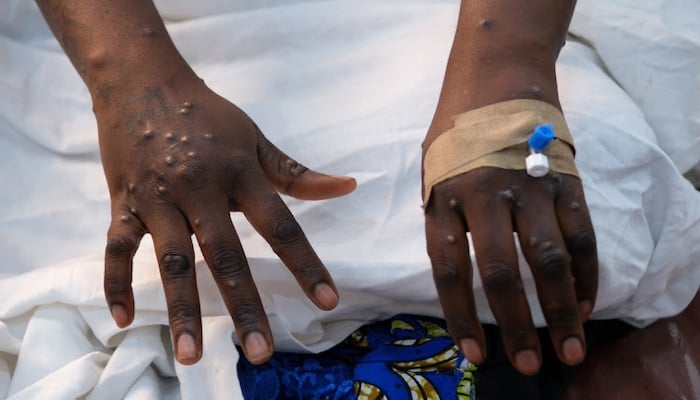The Ghana Health Service (GHS) has released its latest update on the Mpox situation in the country, confirming seven new infections as of June 16, 2025. This brings the cumulative number of confirmed Mpox cases in Ghana to 98 since the disease was first detected. While the increase in cases might raise concerns, the GHS has assured the public that the situation remains under control and that there have been no reported fatalities related to Mpox in Ghana. Furthermore, as of the most recent update, there are no active hospital admissions related to Mpox, indicating that the current cases are being managed effectively outside of hospital settings or exhibiting mild symptoms.
Mpox, formerly known as monkeypox, is a viral zoonotic disease that primarily spreads through close contact with an infected person or animal, or with contaminated materials like bedding. The virus enters the body through broken skin, the respiratory tract, or mucous membranes (eyes, nose, or mouth). Human-to-human transmission occurs through direct contact with infectious skin lesions, body fluids, or respiratory droplets. Symptoms of Mpox typically include fever, headache, muscle aches, back pain, swollen lymph nodes, chills, and exhaustion. A distinctive rash, often beginning on the face and then spreading to other parts of the body, also characterizes the illness. The rash develops through various stages, from macules (flat lesions) to papules (raised lesions) and vesicles (fluid-filled blisters), eventually forming pustules and scabs. The incubation period, the time between exposure and the onset of symptoms, is usually 6 to 13 days but can range from 5 to 21 days.
The GHS has reiterated its commitment to controlling the spread of Mpox and has emphasized the importance of public cooperation in adhering to preventive measures. The service continues to urge the public to practice meticulous personal hygiene, a cornerstone of infection prevention and control. This includes frequent hand washing with soap and water or using alcohol-based hand sanitizers, especially after contact with potentially contaminated surfaces or individuals. The GHS also advises against close physical contact with individuals suspected of having Mpox. Avoiding skin-to-skin contact, sharing personal items like bedding and towels, and maintaining a safe distance from individuals exhibiting symptoms are crucial steps in preventing transmission.
The GHS is actively engaged in surveillance efforts to detect and monitor Mpox cases promptly. Early detection plays a vital role in containing the spread of the disease by allowing for swift isolation of infected individuals and preventing further transmission. The service continues to monitor the evolving epidemiological landscape of Mpox both nationally and internationally, collaborating with partner organizations to stay informed about the latest scientific developments and best practices in Mpox management. The GHS also emphasizes the importance of public awareness and education and has committed to providing regular updates and clear, concise information to the public to address misinformation and promote informed decision-making.
To reinforce these efforts, the GHS is conducting public health campaigns to educate communities about Mpox transmission, symptoms, and preventive measures. These campaigns utilize various communication channels, including traditional media, social media platforms, and community engagement activities, to reach a wide audience and empower individuals to take proactive steps to protect themselves and their communities. The campaigns also address common misconceptions about the disease and emphasize the importance of seeking prompt medical attention if symptoms develop.
The GHS remains vigilant in its efforts to control the spread of Mpox in Ghana. By combining public health education, active surveillance, and prompt case management, the service aims to mitigate the impact of the disease on the population. The GHS continues to collaborate closely with national and international partners to ensure a coordinated and effective response to the ongoing Mpox situation. The public is encouraged to remain informed and follow the guidance provided by the GHS to contribute to the collective efforts to contain the spread of the disease and safeguard public health. A continuous monitoring of the situation, coupled with adaptable strategies based on emerging data, will be crucial in maintaining control over the spread of Mpox in Ghana.


